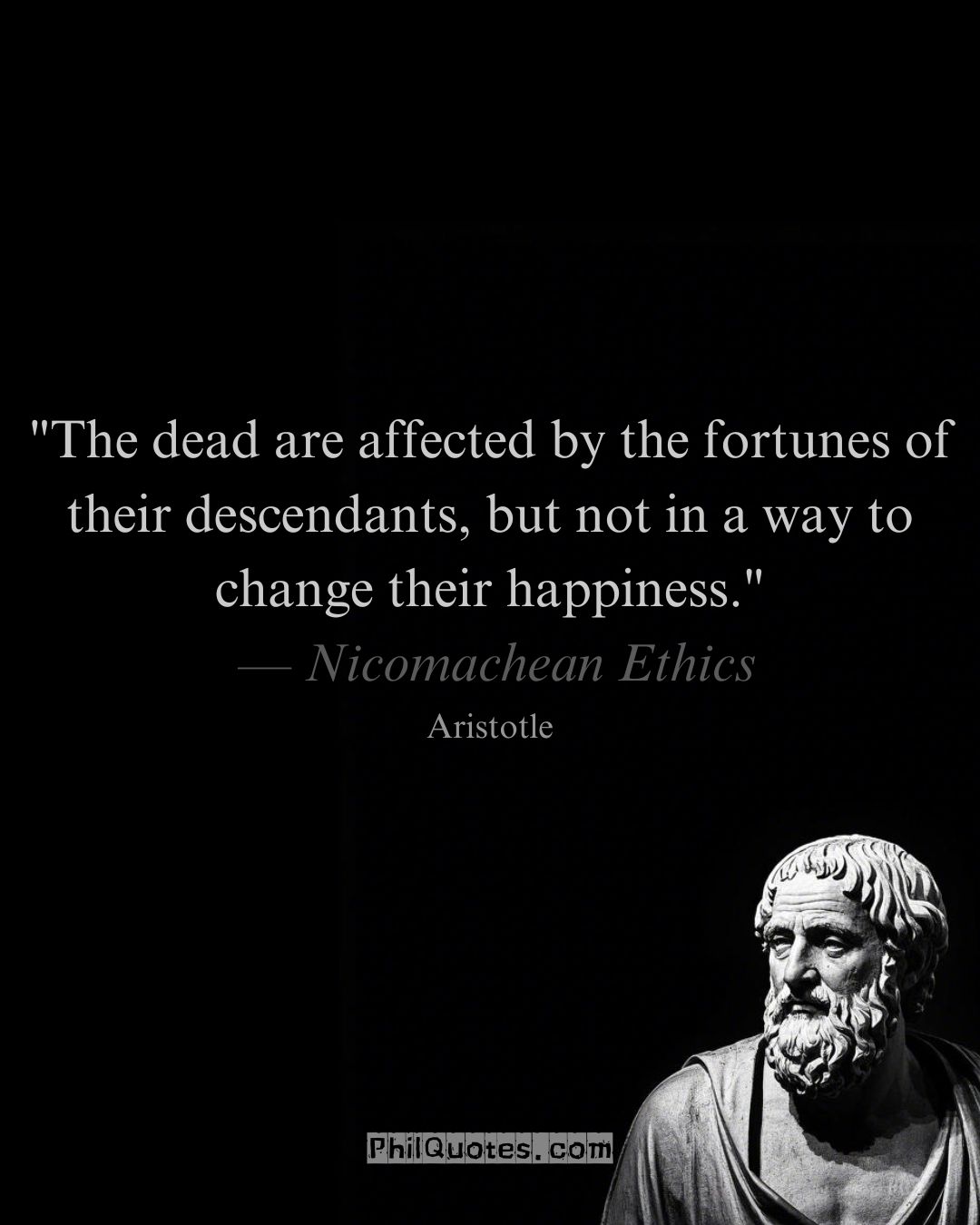
“The dead are affected by the fortunes of their descendants, but not in a way to change their happiness.”
— Aristotle, Nicomachean Ethics, Book I, Chapter 11
Explanation:
Aristotle proposes a nuanced view: while the deceased retain a symbolic connection to living kin’s successes or failures, their eudaimonia (flourishing) — cemented by lifetime virtue — remains untouchable by temporal events. Imagine a completed masterpiece: later owners may damage its frame, but the artist’s achievement in creating it endures.
Real-World Connection:
① Historical Legacy →
A civil rights leader dies with moral integrity → their movement faces setbacks decades later (descendants’ struggle) → yet their happiness (eudaimonia) persists in history’s judgment of their courage.
② Family Business Ethics →
You build a fair-trade company → heirs later exploit workers (descendants’ moral fall) → your posthumous happiness rests on original virtuous intent, not their corruption.
③ The Hidden Paradox →
- Ancestral Impact: Descendants’ actions can honor or tarnish a legacy, but not rewrite the ancestor’s inner virtue ledger.
- Moral Time Capsule: True happiness becomes a sealed ethical archive at death — its worth fixed by deeds done, not posterity’s waves.